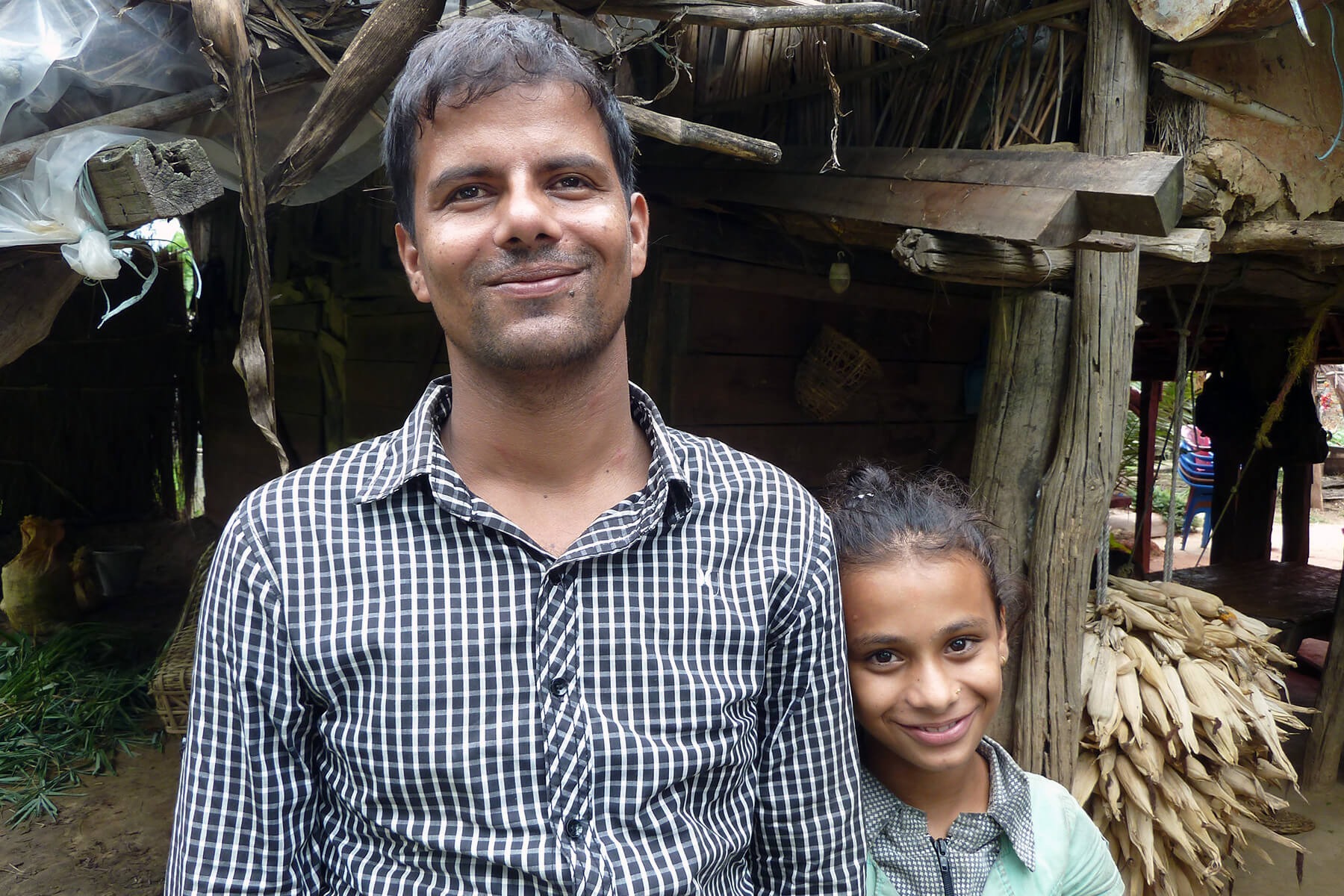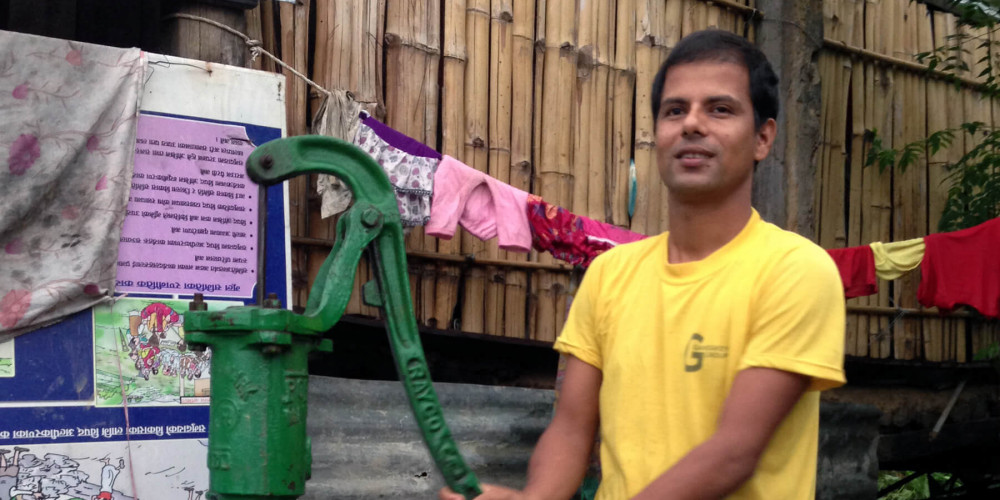KIT Blog
Would you risk a tiger attack for a glass of water?
-
 Admin
Admin
- Feb 05, 2017
- Nepal,
- People you have helped
Dhruba went completely blind when he was only 17 years old. He was studying for his year 10 exams when his vision suddenly went dim. He went to hospital where the doctors told him he was irreversibly blind—a diagnosis that specialists in India later confirmed. Dhruba will be blind for the rest of his life. Without sight, Dhruba was unable to complete school. Working has almost been impossible. He relies on his parents to support him, his wife Devaka and his one year old child Suracha. Dhruba and his family also look after their 12 year old niece, Sabita, following her father’s death. Thankfully, your support has given a scholarship to Sabita so she can attend school.
 Dhruba stands with his niece Sabita out the front of their home in Chitwan
Dhruba stands with his niece Sabita out the front of their home in Chitwan
Dhruba would love to read Braille. PACED project staff and his Self Help Group are working together to find a way he can learn it without having to travel far away. He’s already received a “digital white cane” (which vibrates when he is within 3m of an object) through the support of Australian supporters and the National Federation of Disability, Nepal.
Dhruba lives in a village called Madhi which is 1km from the border of Nepal’s Chitwan National Park. While it’s a beautiful location, it comes with great difficulties. The Nepali government has decided that only underground power-lines can connect the village to mains power. This means there will be no access to electricity for at least another year. Sometimes wild animals also attack the village. Last year a tiger killed a woman with a disability as she drew water from a well. Dhruba’s blindness makes him especially vulnerable to animal attacks. Dhruba and his family have had to flee from their home several times because of rampaging groups of elephants and rhinoceroses.
During the dry season, Dhruba used to walk for 2km through the dangerous jungle to get fresh water. But Dhruba now has safe drinking water at his house! Dhruba coordinated with The Leprosy Mission, the National Federation of the Disabled, Nepal, and another local organisation (as well as contributing his own funds) to build a water point at his house. Nine other families also benefit from this well. That a person with a disability has helped solve the safe drinking water shortage has improved attitudes in the community.
“I’m grateful that through the support of The Leprosy Mission, I and other people with disability/affected by leprosy have been able to form a cooperative and support each other. My wife and I and our whole family are so happy to have your support!”
—Dhruba
The Dakshankalika Self Help Group
Since joining the Dakshankalika Self Help Group in late 2014, Dhruba says he feels much less lonely. The community respects the group and its members for providing community education. The group elected Dhruba to be the “Life Skills Trainer” to teach the community. He has taught on WaSH (water, sanitation and hygiene), preventing gender violence and the rights of people with leprosy and disabilities.
Two years ago, Dhruba and his Self Help Group were also trained in beekeeping. They plan to work together as a cooperative business to sell honey. Your support is helping people like Dhruba provide for his family and transform his community. Thank you for making this a possibility.












